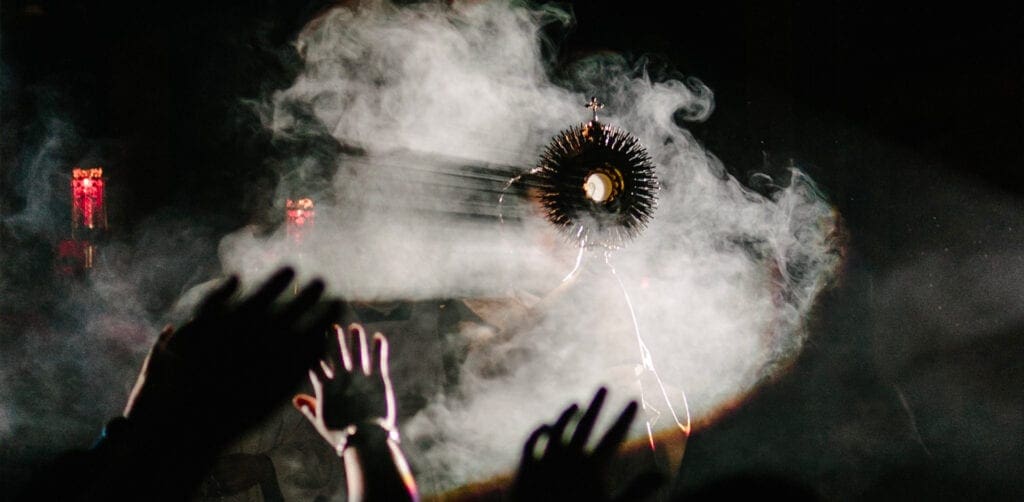The Mass is the special moment of encounter for M. Vincent. It also brightened his day and he lived in an Eucharistic atmosphere which manifests itself in a very great devotion to the Mystery of the Blessed Sacrament.
He is the man of the Trinity (the patron of his new congregation), of the Incarnation (he wants us to celebrate Christmas intensely), and of the Most Holy Sacrament of the Altar. All these mysteries, one might say, fit together, into each other. But the sacrament of the Eucharist is the concretization of the first two. From this stemmed the intense devotion that he developed. He spontaneously entered churches with great respect and fell on his knees before the tabernacle. He liked to linger in front of it if he was not pressed for time. He did not speak in its presence and did not allow unnecessary chatter. What would he say today?
Even better: he read his mail in front of the holy reserved sacrament, and I knew such a superior general who would imitate him in this practice. On entering and leaving the house, he would first venerate the Master while going by the chapel and he prescribed this for his disciples; some still continue this practice.
What else can I say except that he celebrated every day and, if he fell sick, which happened to him quite often with his bouts of fever, he requested daily communion. In an era that would soon sink into Jansenism and its outrages, this requirement is remarkable. What do we do about frequent communion? Do we trivialize it? Or do we neglect it?
There remain his incisive words on his faith in the Blessed Sacrament, such as this remark: “Do you not feel, my brothers, do you not feel this divine fire burning in your chest, when you receive the adorable Body of Jesus Christ in communion ? (Abelly, bk. 3, chap. 8, sect. 1, p. 79). He gave strong instructions to the Daughters of Charity, instructions with no wrinkle: “The person who has made a good Communion does everything well!” (CED, conf. 31, 9, p. 332; CCD, p. 261). This teaching is decisive for the quality of our communions. We have to do this act in the best desired way, better prepared and better lived out. Approaching the Eucharistic bread is by no means trivial but always new and stimulating. It builds us up spiritually and commits us to holiness. To communicate is to desire “to become what we are, the Body of Christ.” Do we think about this?
Finally, if we are reluctant and too rebellious to frequent communion, we can hear Saint Vincent pushing us: “Do you think you will be more capable of drawing nigh unto God by moving away from, rather than by approaching Him? Oh! certainly, that is an illusion!” (Coste, Monsieur Vincent, I, 232; English: 197).
Jean-Pierre RENOUARD CM
Province of France


